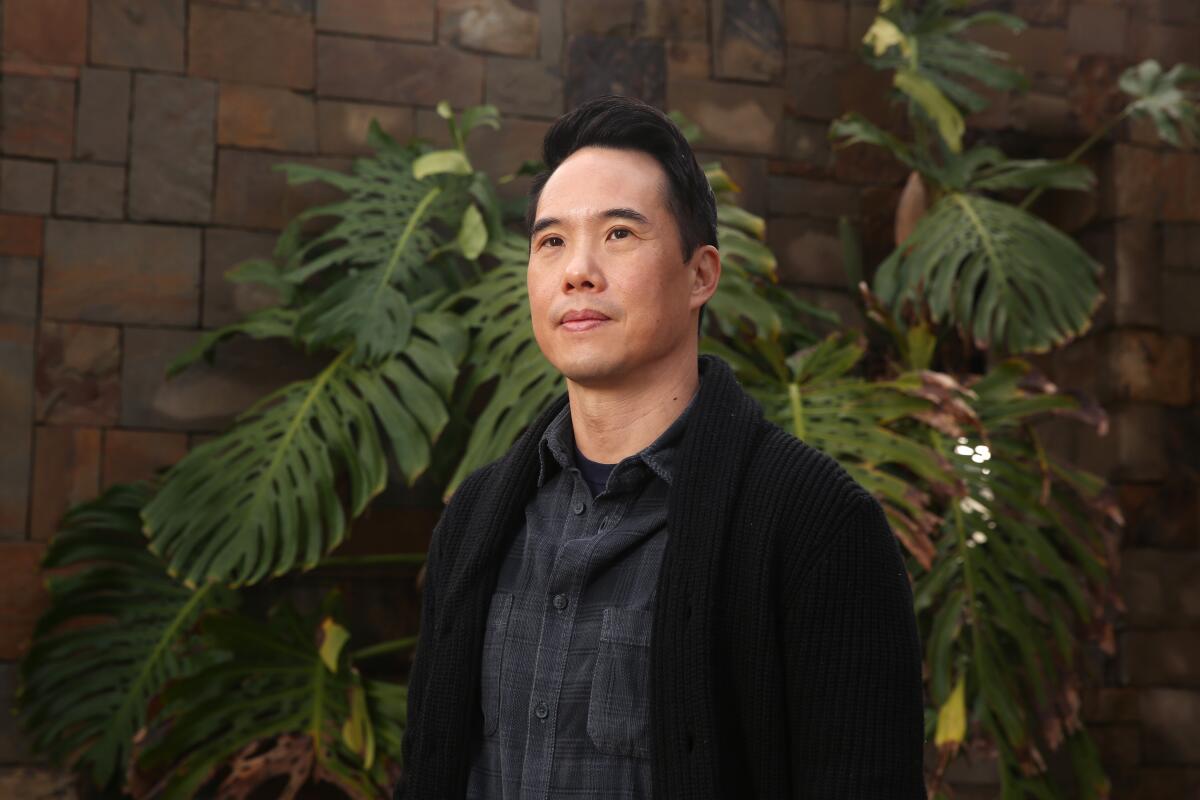Sign up for our Book Club newsletter
Get the latest news, events and more from the Los Angeles Times Book Club, and help us get L.A. reading and talking.
You may occasionally receive promotional content from the Los Angeles Times.

Which shows have been your COVID-19 pandemic panaceas as you’ve stumbled through this locked-down, upside-down year? “The Good Lord Bird”? “The Queen’s Gambit”? “The Undoing”? As disparate as they are, these shows have one thing in common: They were all adapted from books.
The so-called IP pipeline, through which stories flow from authors’ screens to yours, is just as vital to the culture economy as oil pipelines are to our fossil-fueled lives. Books have provided essential raw material (a.k.a. intellectual property) for Hollywood since its founding, but the streaming-driven proliferation of content has led to an explosion of book-to-screen deals. It’s one of the few sectors of the business that has actually accelerated during the pandemic.
As Ryan Faughnder reported in The Times in October, more time at home and less in production has freed up Hollywood’s decision-makers to read books: “That newfound availability, coupled with streaming services’ and media companies’ insatiable appetite for fresh material, has led to a substantial uptick in sales.”
The shutdown in production and the streaming services’ insatiable appetite for new I.P. has led to a surge in sales of film and TV rights for books during COVID-19. That has been a boon for agencies.
Dig deeper into the relationship between authors and Hollywood, though, and you find more than a cash grab. Increasingly, those deals come trailing the writers themselves — novelists looking for steady work. They’re in a large number of TV writers rooms, lapping up the conviviality along with the health insurance. They’re making bold, difficult changes to their own work, as Eleanor Catton has done to turn her sprawling, complicated novel “The Luminaries” into a new Starz show.
These forces are also driving the careers of a powerful and increasingly diverse subset of industry players specializing in book-to-screen. And they’re responsible for 16 projects already in the 2021 awards race.
Here is The Times’ starter kit for understanding the book-to-screen universe, a state of play in which the medium hardly matters as long as you can spread the message.
‘Vanishing Half’ author Brit Bennett talks about the inspiration behind her bestselling novel.

Novelists are writing for TV more than ever. How it’s changing the industry
As the financial rewards of writing books shrink and the need for streaming content continues to grow, more and more novelists are expanding their skill sets and their incomes by moving from page to screen (or writing for page and screen). In recent years, novelists have been warmly welcomed — in some cases, energetically recruited — into TV writers rooms. And as much as publishing has changed in the last two decades, television has changed even more. Read more >>>

Meet 8 industry players behind Hollywood’s book boom
Book-to-screen deals are reported by the Hollywood trades in pieces that dutifully mention the novelists, directors and actors involved but often leave out the people who actually made it happen. Below are eight of Hollywood’s most important behind-the-scenes movers, shakers and connection-makers — agents, scouts, managers and execs. Not all of them toil in obscurity, but each contributes mightily to the adaptation process that puts all those pages on the screen. Read more >>>
What our critics think of ‘Bridgerton’ and 15 more book adaptations in the 2021 awards race
16 projects originating as books are already in the awards race, including “Bridgerton,” “Emma,” “Nomadland,” “Hillbilly Elegy,” “Lovecraft Country” and “The Undoing.” Were they worth the trouble? Our critics chime in. Read more >>>
How do you adapt an 800-page novel for TV? 7 years, 300 drafts and plenty of crying
Eleanor Catton spent more time adapting her Booker Prize-winning novel “The Luminaries” into a six-part miniseries than she did writing it in the first place. “I hadn’t realized how much desire is the language of the medium,” she says of TV. “I had to learn for the first time what the essence of drama is.” Read more >>>
With curbside pickup and even some in-store visits available, there’s no reason to buy books at an online mega-store. Here’s a list of locals instead.
Sign up for our Book Club newsletter
Get the latest news, events and more from the Los Angeles Times Book Club, and help us get L.A. reading and talking.
You may occasionally receive promotional content from the Los Angeles Times.